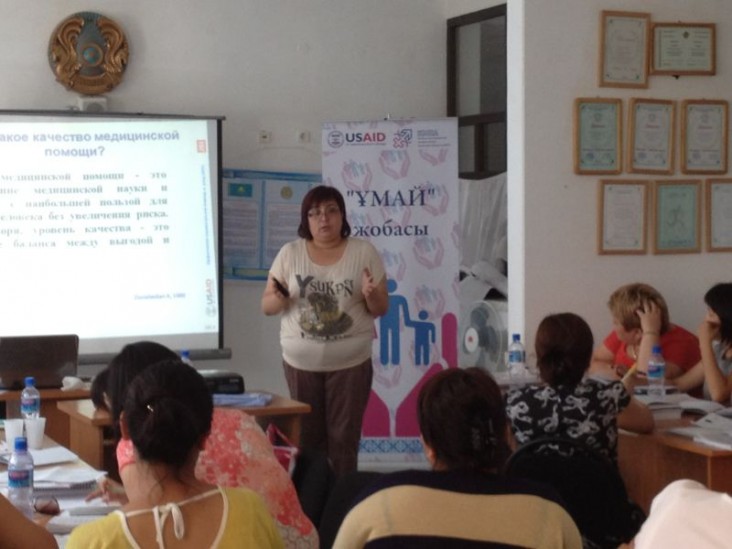
Increased access to quality family planning services and increased awareness of modern methods of contraception are among the main priorities of Kazakhstan's health-care system in the area of sexual and reproductive health and rights.
The Kazakh Ministry of Health established regional educational centers in 2009, modeled after existing perinatal centers, to provide support and train a team of trainers to help local health-care workers increase their knowledge and skills in accordance with international recommendations and evidence-based medicine.
USAID partnered with local health departments to ensure a successful start to this work. In the future, trainings from the regional educational centers are expected to be fully supported by the Government of Kazakhstan. The transition is already taking place and provides a good example of the sustainability of USAID’s investment.
Throughout 2012-2013, the USAID-supported Umai project trained a team of 30 trainers who are obstetricians-gynecologists to increase the quality of family planning training at the Kyzylorda and Almaty regional educational centers. National experts on clinical education from the Kazakhstan Association on Sexual and Reproductive Health (KMPA) conducted the trainings. Trainees learned to use interactive methods to teach counseling and interpersonal communication skills about contraception and family planning.
“While conducting my first training, it turned out that it was much easier to train somebody using interactive approaches. And it would be great to have Kazakh language study materials,” said Dr. Irina Sugurova, a newly trained trainer from Kyzylorda Policlinic #6. Training was conducted in the Russian language.
Now, the newly trained clinical trainers are sharing their knowledge and skills in onsite trainings. Training on family planning and counseling skills was first held in Kyzylorda, then Taldykorgan. The trainings, attended by more than 50 service providers from all districts of the two regions, were fully financed by the regional educational centers. These leaders will in turn train their peers at their local clinics. KMPA experts monitored some of the trainings to provide technical assistance and informational materials if needed.
Newly trained coordinators from the Taldykorgan and Kyzylorda regions plan to conduct local trainings quarterly. As a follow up, monthly visits to districts will be conducted, with the support of KMPA staff, to monitor how previously trained OB/GYNS are using newly obtained counseling skills in family planning.
The Umai project to improve access of women and men of reproductive age to quality family planning services runs from July 2012 to July 2014.







Comment
Make a general inquiry or suggest an improvement.